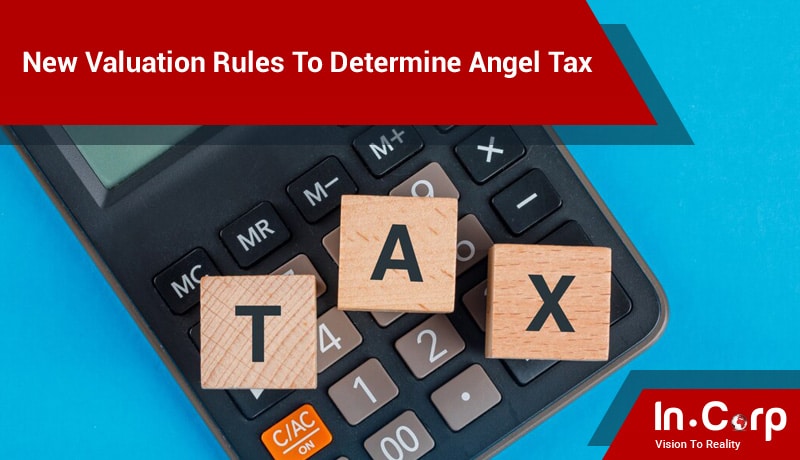COVID-19 pandemic has made life unpredictable. Today, irrespective of your age, you need to plan your future to ensure the safety and security of your family. You can do so with the help of a Will.
In this article, we shall explain what a Will is, its different types, why you should prepare one and how to make a will in India:
Table Of Contents
What Is A Will?
What Are The Different Types Of Wills?
Why Should You Register A Will?
How To Prepare A Will In India?
Conclusion
Why Choose Incorp For Preparing A Will?
FAQs on Will
First, let us understand a few key concepts.
What Is A Will?
A “Will” is a legal declaration of the person making the Will. It refers to an individual’s intention concerning their ancestral property, personal properties, investments, source of income (subject to some limitations). It specifies how their assets shall be treated after their demise.
A Will makes it easier for your dependents to distribute your assets in your absence. Without a Will, everything owned shall be distributed as per law. The process would be time-consuming and intense. Further, it may not lead to undesirable results.
Note: A person who gets his Will made is known as a testator. On the testator’s death, an executor of Will or heir of the deceased can apply for probate.
What is Probate of will?
Probate refers to the order passed by the court declaring the legality and the correctness of your Will.
Now Let Us Take A Look At The Different Types Of Will in India
A Will could be of many types depending upon its necessity. A few types have been detailed below:
- It shall be executed conditionally. It means that the Will would be executed only when a particular event occurs in the future.
- The main aim is to ensure the execution of specific business or personal commitments at a future date.
- When two or more people agree to make a conjoint Will, it is known as a Joint Will. Such testamentary documents are generally created between married couples.
- It is recommended for senior citizens to ensure financial security to the other spouse in the event of the death of either spouse.
- Mutual Wills are Wills of two or more persons and executed based on a contract or agreement between them to give away their property to each other or third persons.
- They are prepared for a specific business project (partnership) between two or more individuals to avoid any business loss.
- The distribution of assets and rights is defined in the event of the sudden death of any partner.
- It is prepared by individuals holding multi-locational properties, including properties outside India, and is subject to the laws of different countries. The testator can make separate Wills for properties located in different geographical locations.
- Co-existing Wills with declarations of a single testator may be known as Concurrent Wills.
- You may also set aside a portion of your wealth for charitable purposes and may create public trust.
- When your dependents are either too young or are mentally / physically challenged you can create a trust naming them as beneficiaries of the trust.
- You may set aside wealth only for your family and build a private trust.
Other types of Wills include:
- Privileged and Unprivileged Wills,
- Holograph Wills,
- Advance Medical Directives (commonly known as ‘Living Will’) etc.
Want a systematic way to consolidate your finances?
Use our free Personal Finance Tracker!

Why Should You Register A Will?
Now that we understand what a will is and what are the different types of will that can be issued, let’s understand the benefits of a legally registered will. Registration confirms that the Will is genuine. Once a Will is registered, you cannot doubt its validity.
The following are the advantages of registering a will:
- It cannot be altered, destroyed or tampered.
- It gives the successor/ heir mentioned in the Will their legal right.
- It ensures transparency, meaning only the testator or his authorized representative can register the will during his lifetime.
- It guarantees security.
- It enables you to obtain probate and letters of administration.
Note:
- The heir of the deceased may or may not be a relative. It is at the sole discretion of the testator.
- A Will can be registered within three years from the date of death of the testator.
- Distribution of assets as per Will or testament is tax free under the Indian Income Tax Act.
Do you want to register a Will?
Contact our team of experts now!
How To Prepare A Will in India?
While preparing your Will you should make a note of the following:
Step 1: Evaluate your goals and your current financial position
Step 2: Draft your Will taking into account your age, family members, and your possessions.
Step 3: Register your Will
Step 4: An executor shall enforce your Will, in your absence
Step 5: Probate of Will (when it is mandatory)
Step 6: Settlement of your assets and liabilities
Step 7: An executor shall ensure all the related compliances.
Conclusion:
Most importantly a Will is the distribution of a Will maker’s property. However, a Will can also be used for:
- name an executor to wrap up your estate;
- name guardians for your children and their property;
- create trusts for your children or other young beneficiaries;
- avoiding family disputes
Why Choose Incorp For Preparing A Will?
We understand that regulatory compliance and succession planning can be complicated. Our dedicated team of family office management experts, legal professionals, tax & financial advisors have knowledge and expertise across various sectors.
We are happy to assist you with the preparation and registration of your Will in India. Further, we shall help you comply with the relevant laws and provisions.



